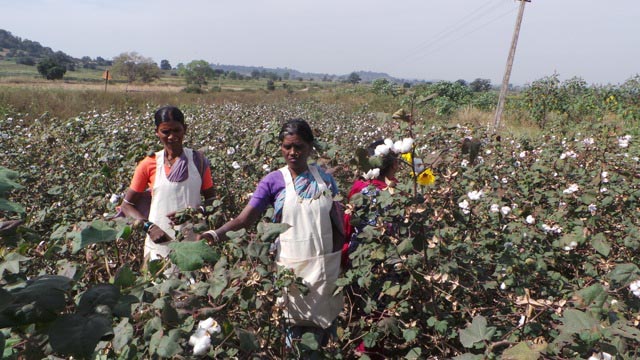
When I started fou, our organic cotton bedding company, my reasons for sourcing certified organic were product and people based. Product quality, fair trade for all involved, and sustainability are the key threads running through our linens. To ensure the very best quality linens, fou furnishings ® has a unique supply chain – established from scratch and built up over the last six years to deliver rigorously specified and tested quality, design and service; ethically and sustainably sourced.
Why organic cotton?
Our organic cotton bed linens are made from 100 per cent organic cotton, because organic cotton fibres consistently produce better quality yarns than conventional cotton. As no harsh chemicals are used in growing or processing organic textiles, the cotton retains its softness and purity. Plus organic cotton linens are completely free of toxins.
Certified Organic
To ensure the transparency and integity, as well as quality of our organic textile supply chain – fou furnishings products are independently certified; many products are ‘dual certified’ organic and Fairtrade; the ‘gold standard’ for sustainable cotton. Look for Fairtrade, the Global Organic Textile Standard (GOTS) or the UK Soil Association logos. GOTS certification is a rigorous global standard that ensures each stage of the supply chain is monitored in addition to ensuring social standards.
Product Quality
All linens are specified and tested to BS EN ISO standards. Made from high thread count 100% organic cotton which comes only from mature, top quality cotton bolls. So wheher you are buying organic cotton linens for your home or hotel, we strive to ensure our Fairtrade and organic cotton linens stand out from the crowd. So you just enjoy the quality and superb comfort through softer, more luxurious and durable, pure cotton linens without toxins that can irritate sensitive skins; which in turn benefits the environment and sustainable development.
Organic Textiles and People
As a company, we focus on the positives of buying organic textiles, conscious that the negative impacts that can occur in relation to conventional cotton – from the crop to the shop – are much reported. A recent post however reminds me why a transparent, certfied supply chain is key. "Cotton report slams India's child labour stats Around 60 per cent of cotton seed farm workers in India are under the age of 18 – a figure which is on the rise according to a new report published by the Stop Child Labour Coalition and the India Committee of the Netherlands."












Sign-up to our mailing list to make sure you keep up to date with all things Fou.